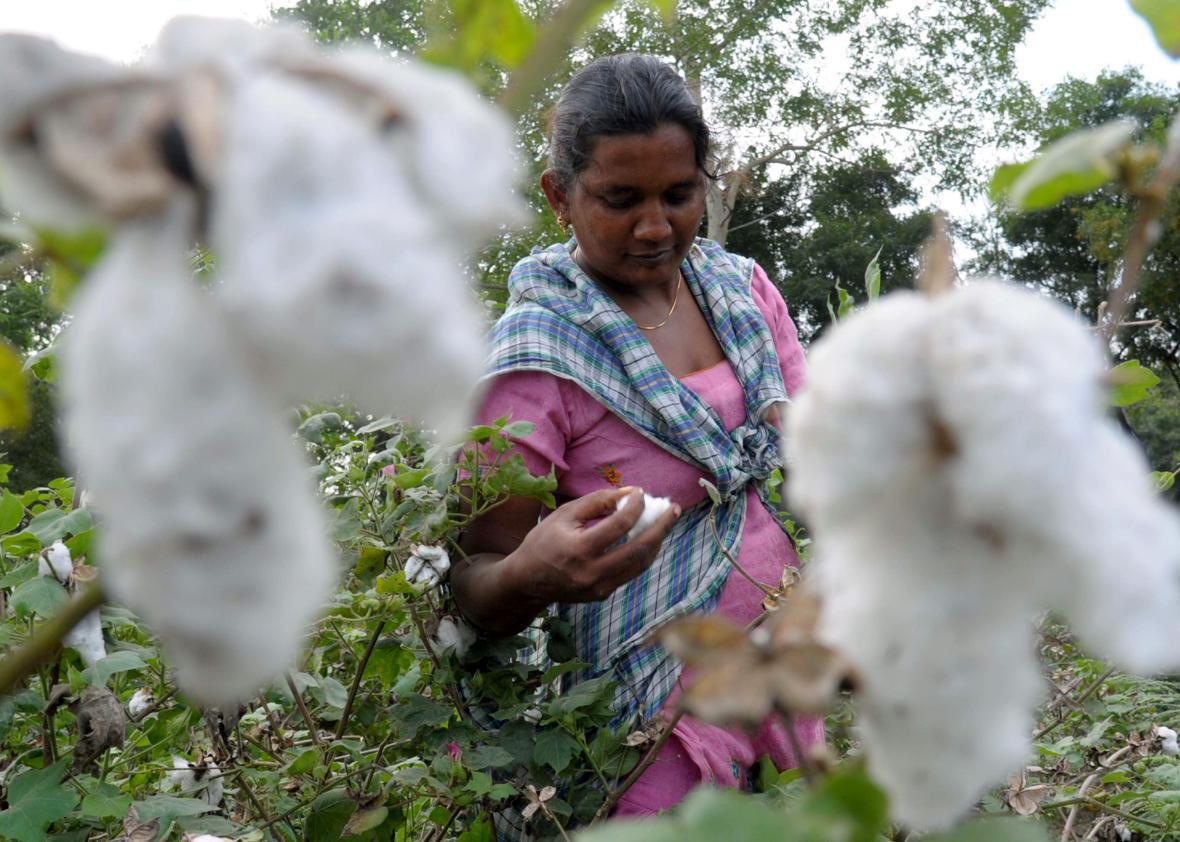This question originally appeared on Quora, the knowledge-sharing network where compelling questions are answered by people with unique insights. You can follow Quora on Twitter, Facebook, and Google Plus.
Answer by Balaji Viswanathan, history buff:
Indian colonization provided the key ingredients for the textile revolution (also called the Industrial Revolution) in Britain. The two key ingredients are cotton and markets. Cotton was massively imported from India, and with an abundance of coal in the U.K., it was processed to produce mass-manufactured textiles that were then exported back to India (and other places). That is the core of the Industrial Revolution that took the West to economic prosperity.
India and the West traded for a long time, going back three great Bronze Age civilizations. Over the years a variety of things moved from India through the Spice route—spices, silk, textiles, incense, wood, precious stones, and so on.
This trade was very important in shaping world history. A variety of African and West Asian kingdoms such as the Kingdom of Aksum and Parthian Empire grew to prosper from the control of the sea- and land-route parts of this trade. As the sea routes in Red Sea got dangerous (the predecessors of present-day Somali pirates attacked ships), the route diverted more inland in the Arabian Peninsula. Mecca was on this route and began attracting new traders who used the water there, leading to a mix of cultures that originated Islam.
As Islam grew on the back of this trade, the Arabs began controlling everything from Spain to Iran. Islam was also challenging Christianity in the Mediterranean and Levant, leading to pitched later battles called the Crusades. After reaching great heights in the five centuries of dominance, the Arab rule declined with the rise of the Mongols. The Mongols rolled up the Caliph in Baghdad and stamped him with horses, symbolically ending their control. Later, another group of central Asians (called the Turks) began using the gunpowder spread by the Mongol Empire and took the mettle of the Arabs. Three groups of this Turkic people migrated around and founded the three main empires of that era—the Ottoman Empire of Turkey, Safavid Empire of Iran, and Mughal Empire of India.
As the Turks began controlling everything in the Middle East, the Europeans began searching for new routes to India. That search brought Columbus to accidentally discover the Americas, while Vasco da Gama discovered the Cape of Good Hope.
The Europeans finally resumed the direct trade with India. This time it went beyond just pepper, silk, textiles, and luxury items. It also included raw cotton that fueled the Industrial Revolution), indigo (one of the main natural dyes for clothing), and tea. These three materials allowed the U.K. to have enormous profits. India also provided a large market to consume the end products.
Eventually, the Indian freedom movement found a way to break this trade by inciting the workers to impede production as well as avoiding foreign textiles through the use of a native spinning technique. With production and consumption greatly reduced, the U.K. began bleeding money, unable to withstand the onslaught of Germany and requiring the help of the Americans. Eventually the World War ended, but the bleeding continued, forcing the U.K. to give independence to India.
While they moved out of India, they still wanted to control the key trade that people sought for thousands of years. A war was waged over the control of the Suez Canal. Later the Americans got in the mix and are now controlling a chunk of the Indian Ocean trade route.
In short, it is all about trade that shaped most of the history. At that point, Australia didn’t have an important place in world trade and hence it was not considered a replacement of any other colony.
Why did the British empire still need a colony on the Indian continent when they had already discovered Australia? originally appeared on Quora. More questions on Quora:
- The United States of America: What is the best thing about United States when compared to the rest of world?
- Historical India: With all the wealth and resources available, why didn’t any Indian ruler ever tried to conquer lands outside the subcontinent?
- Economy of India: How was the Indian economy shaped after its independence?
